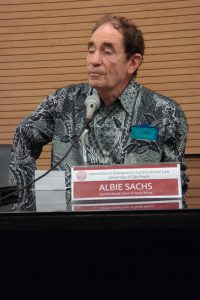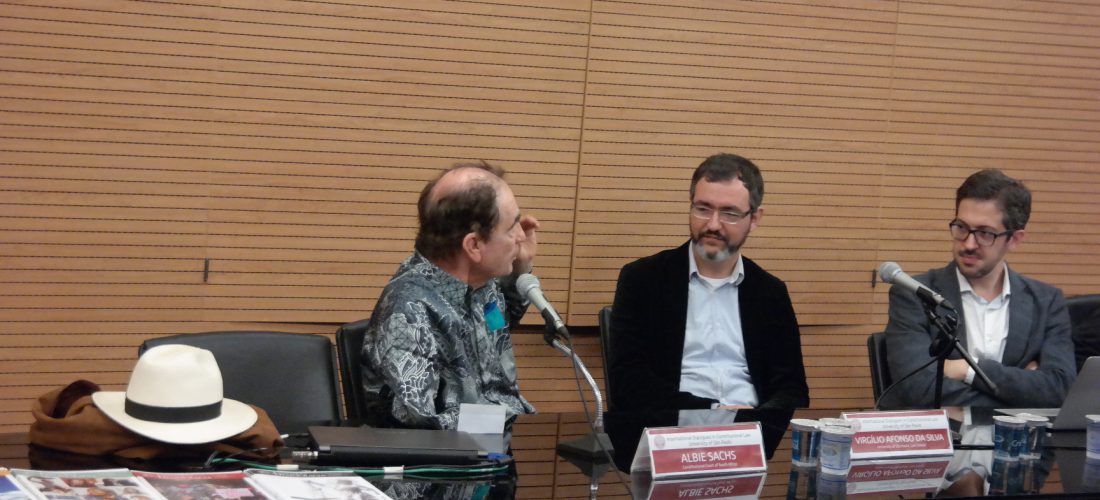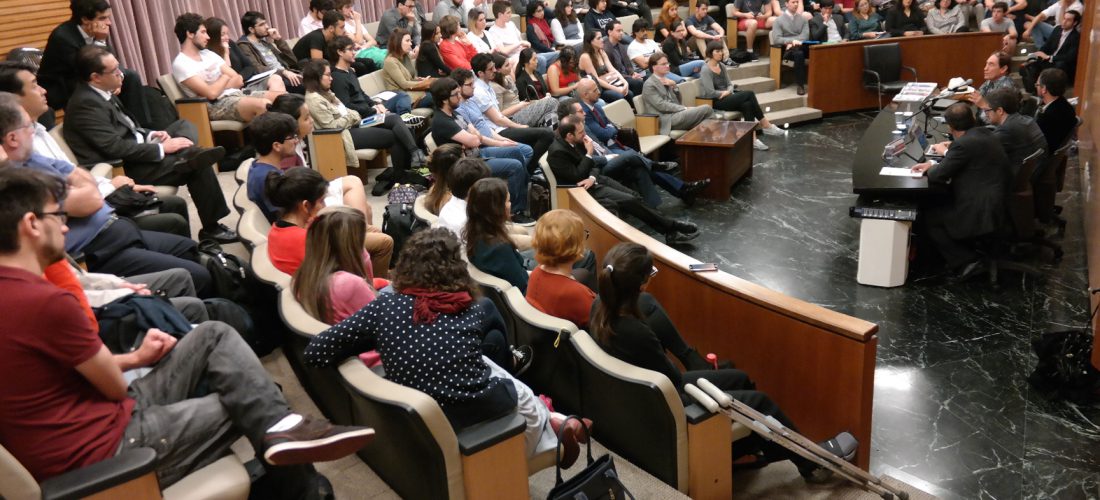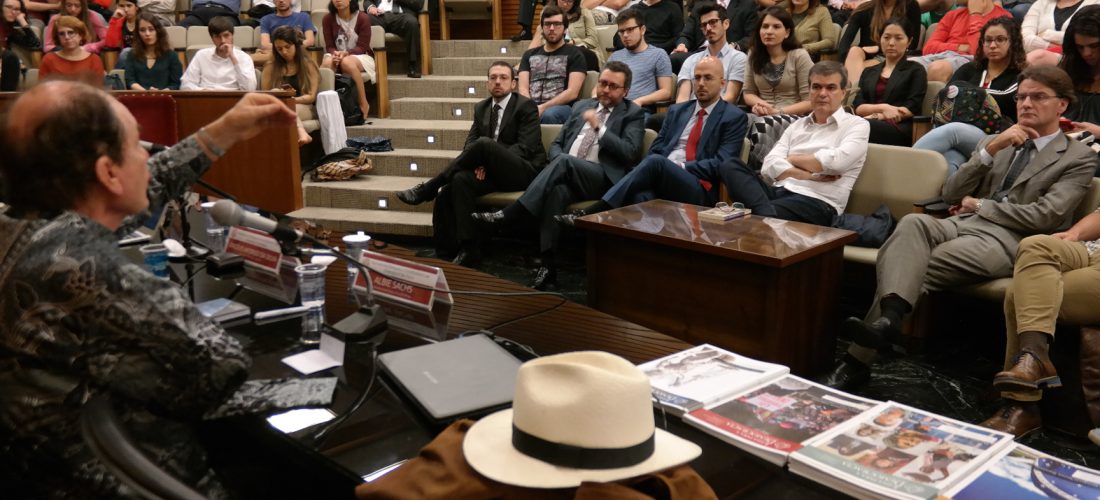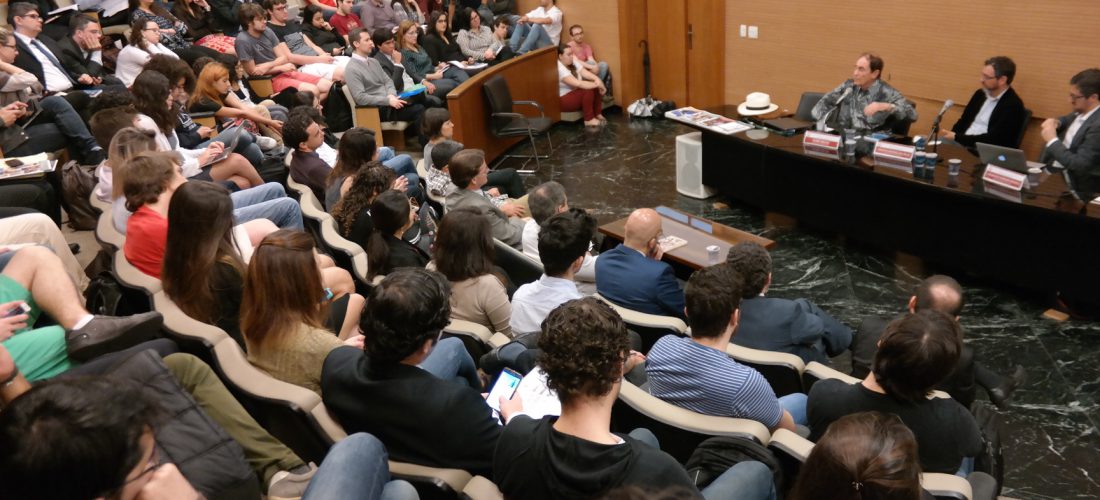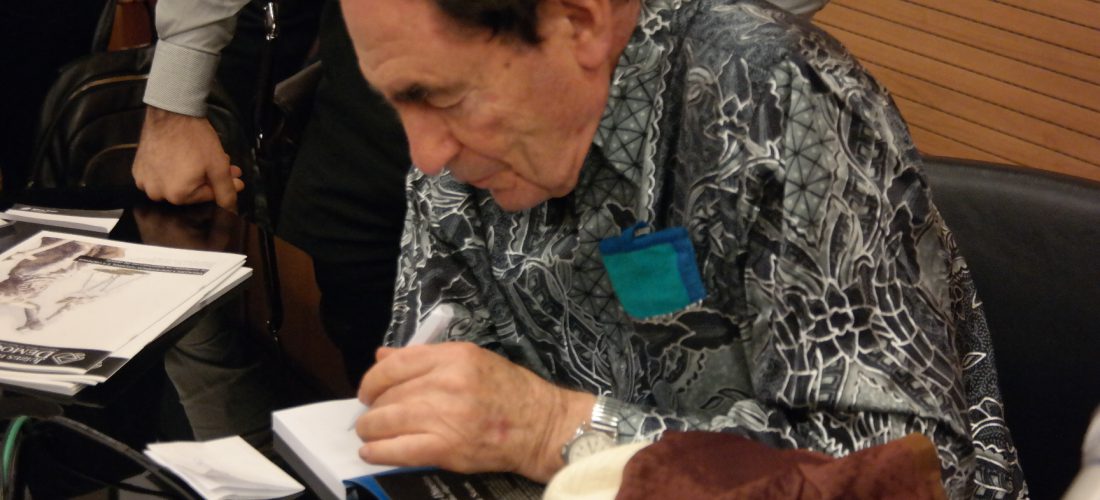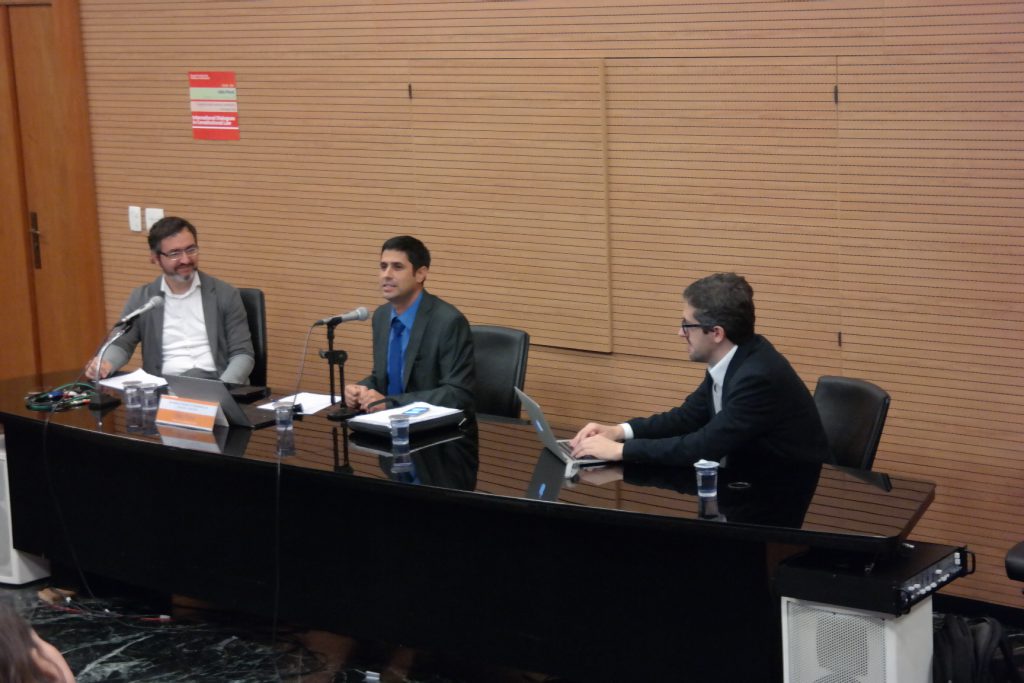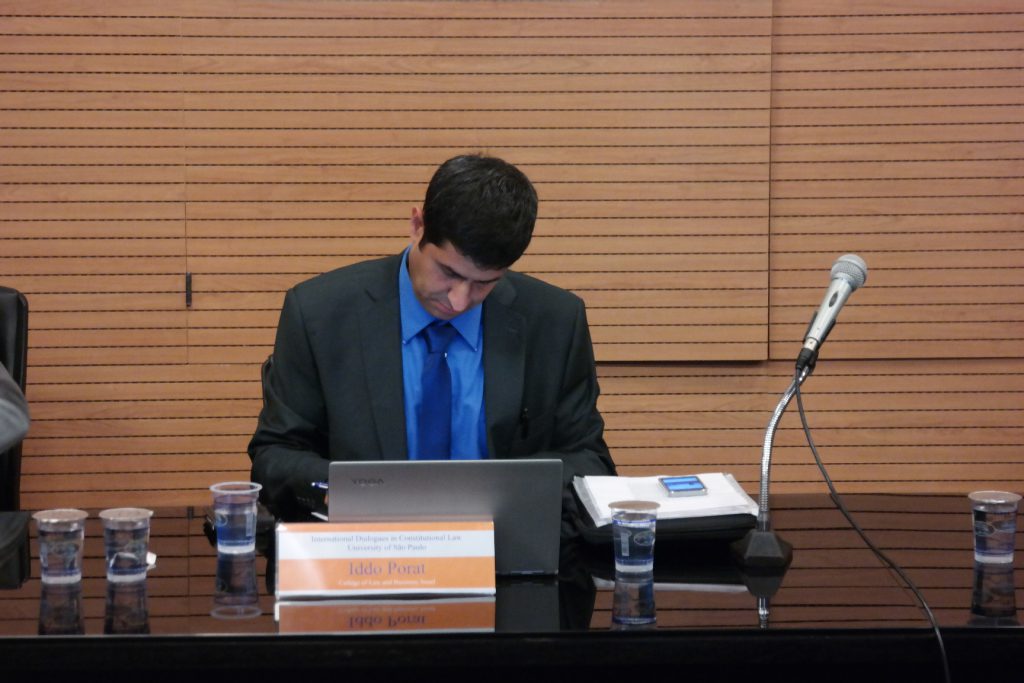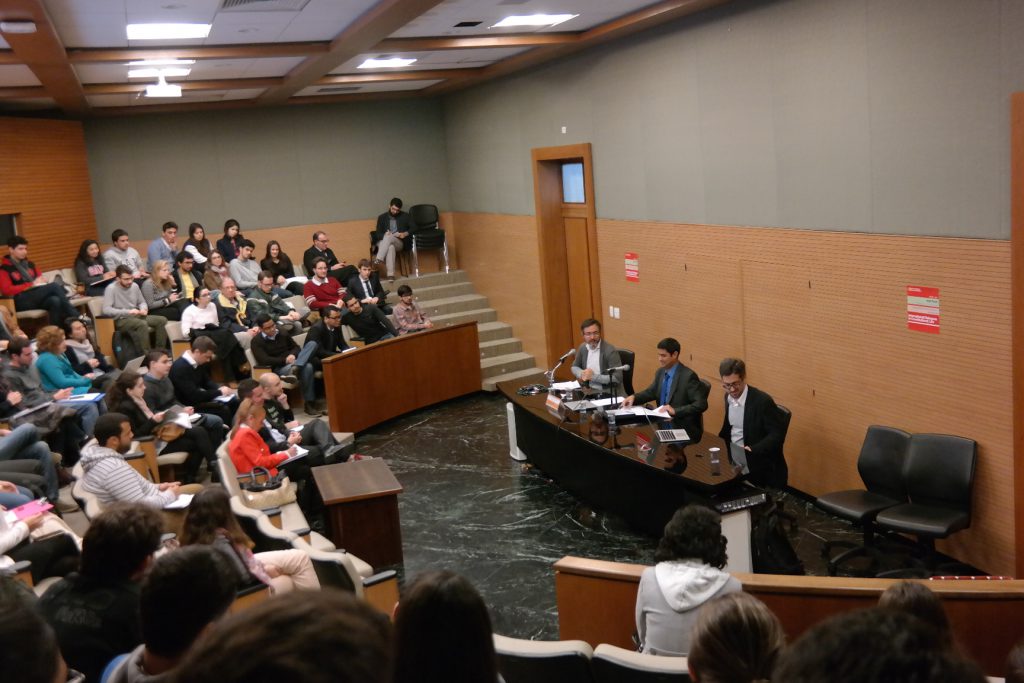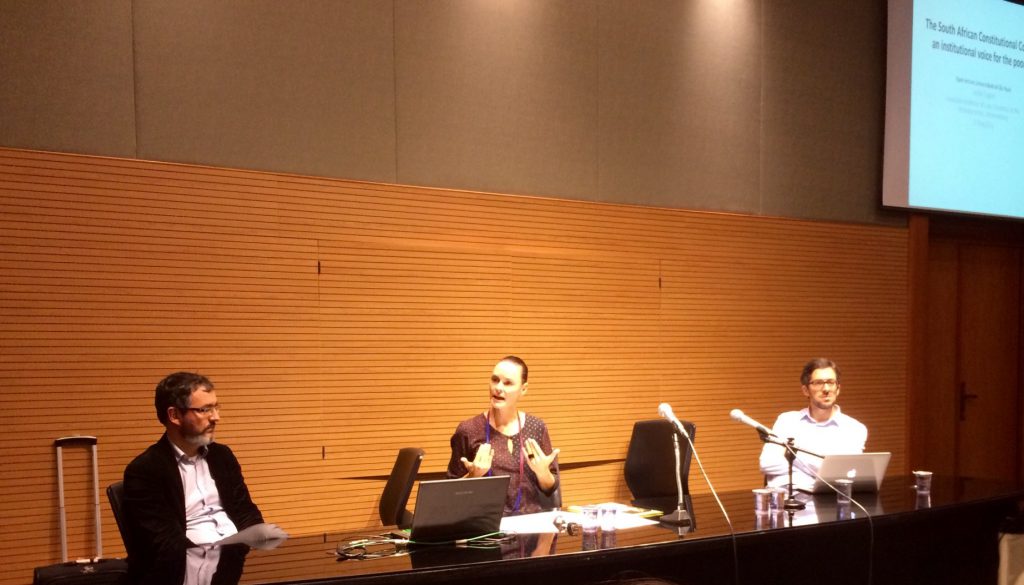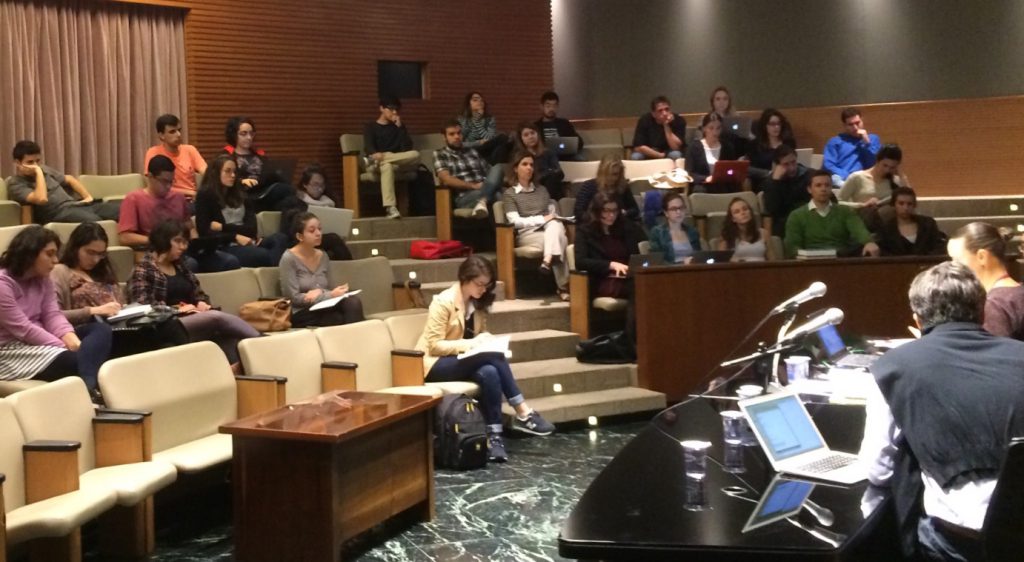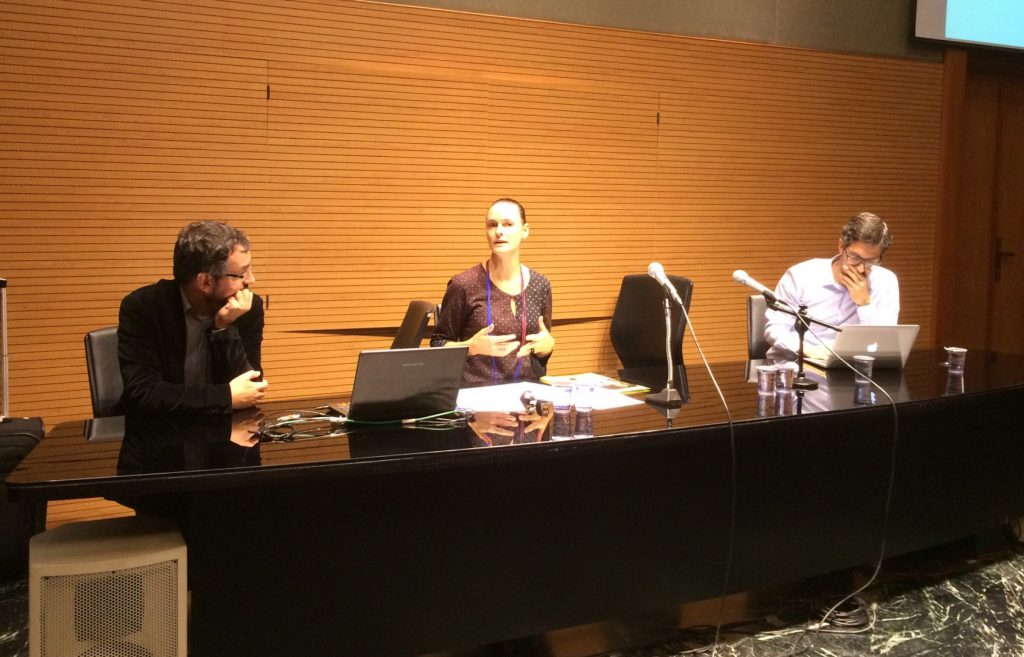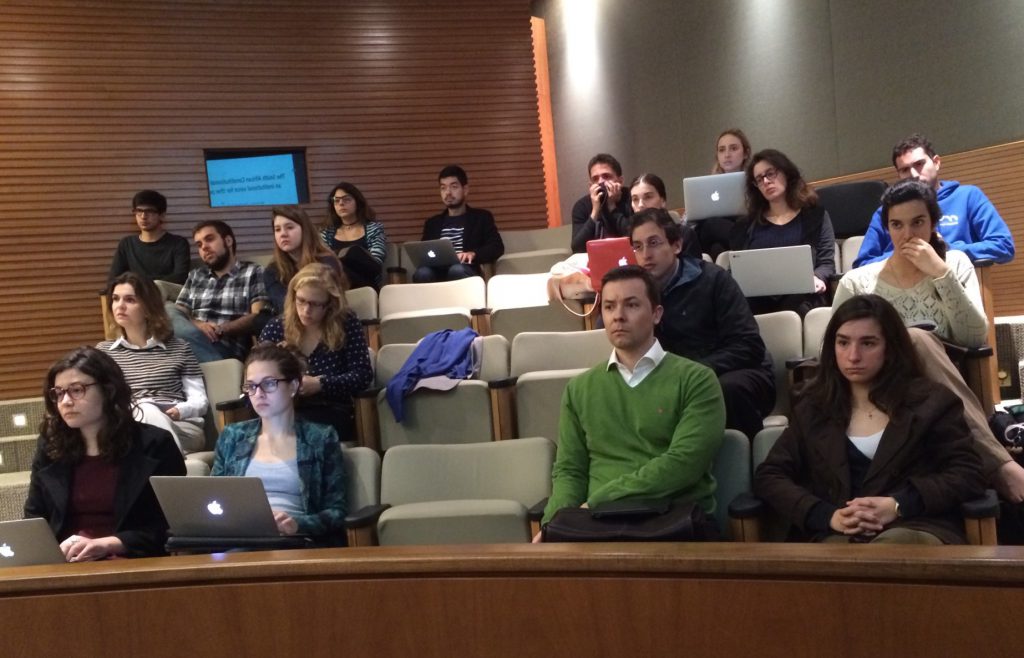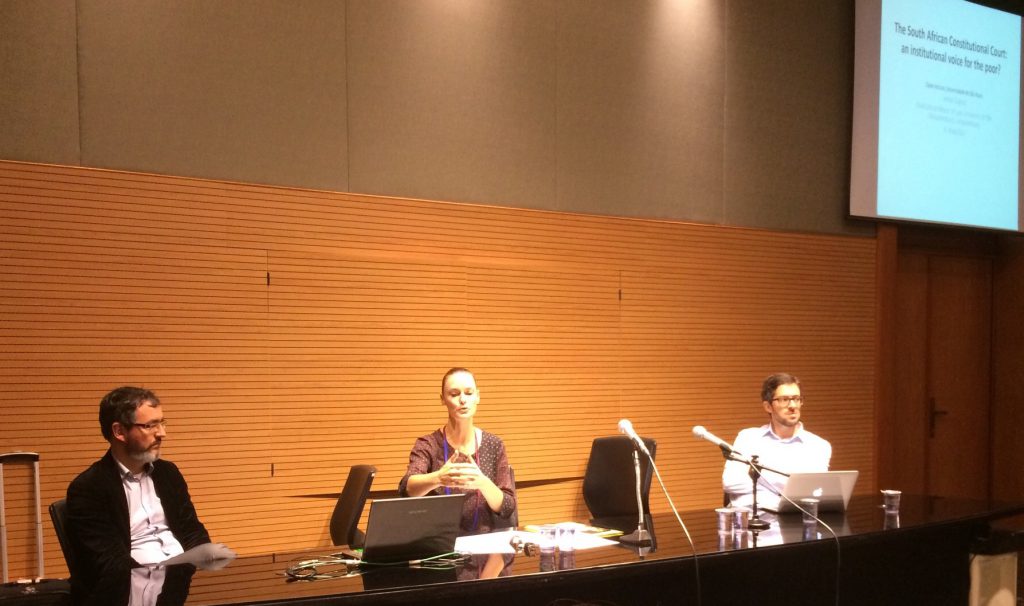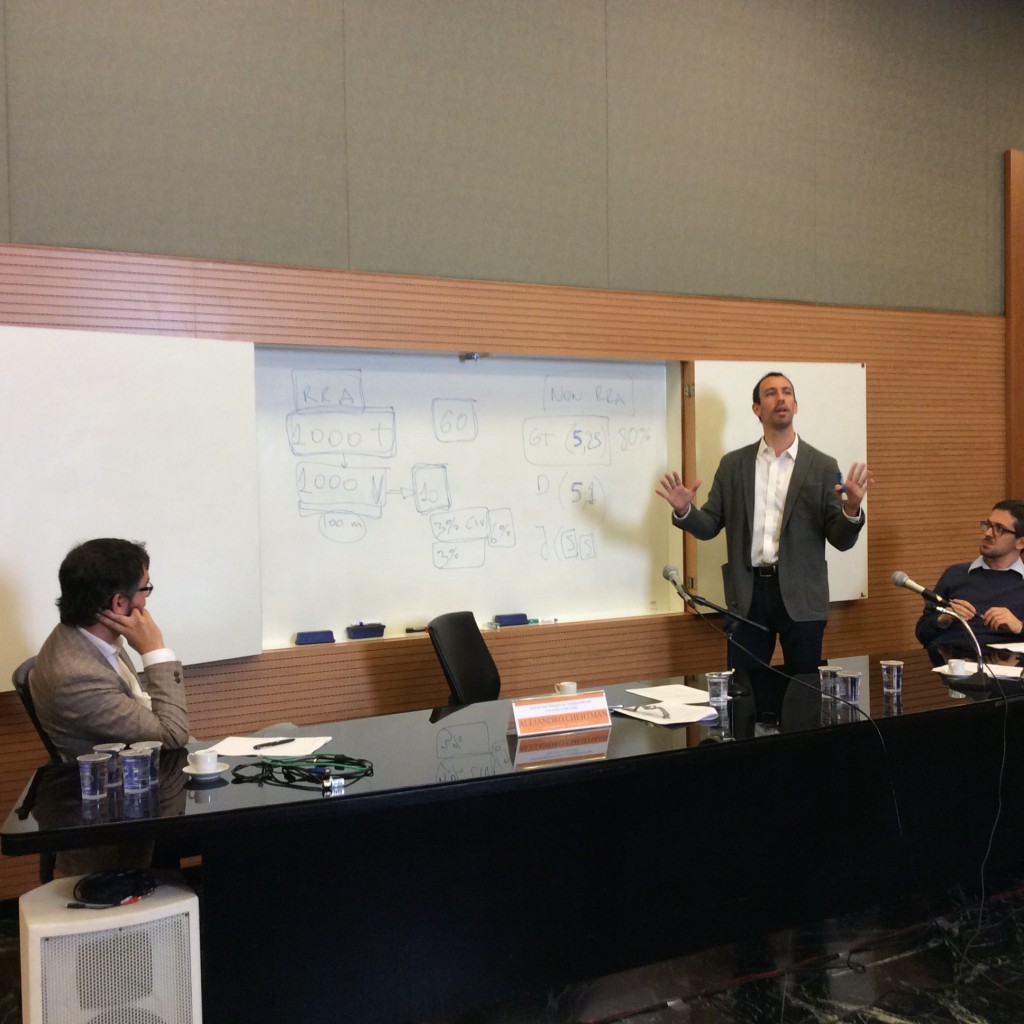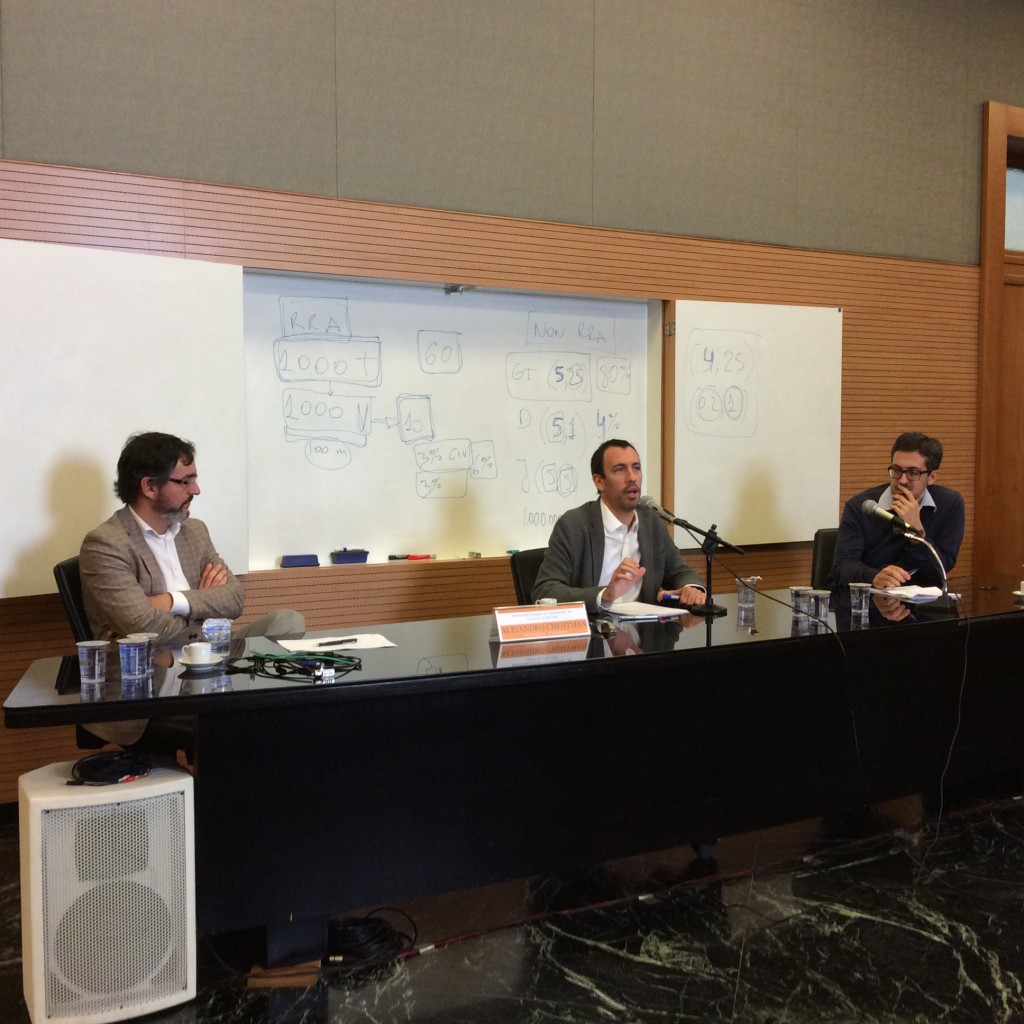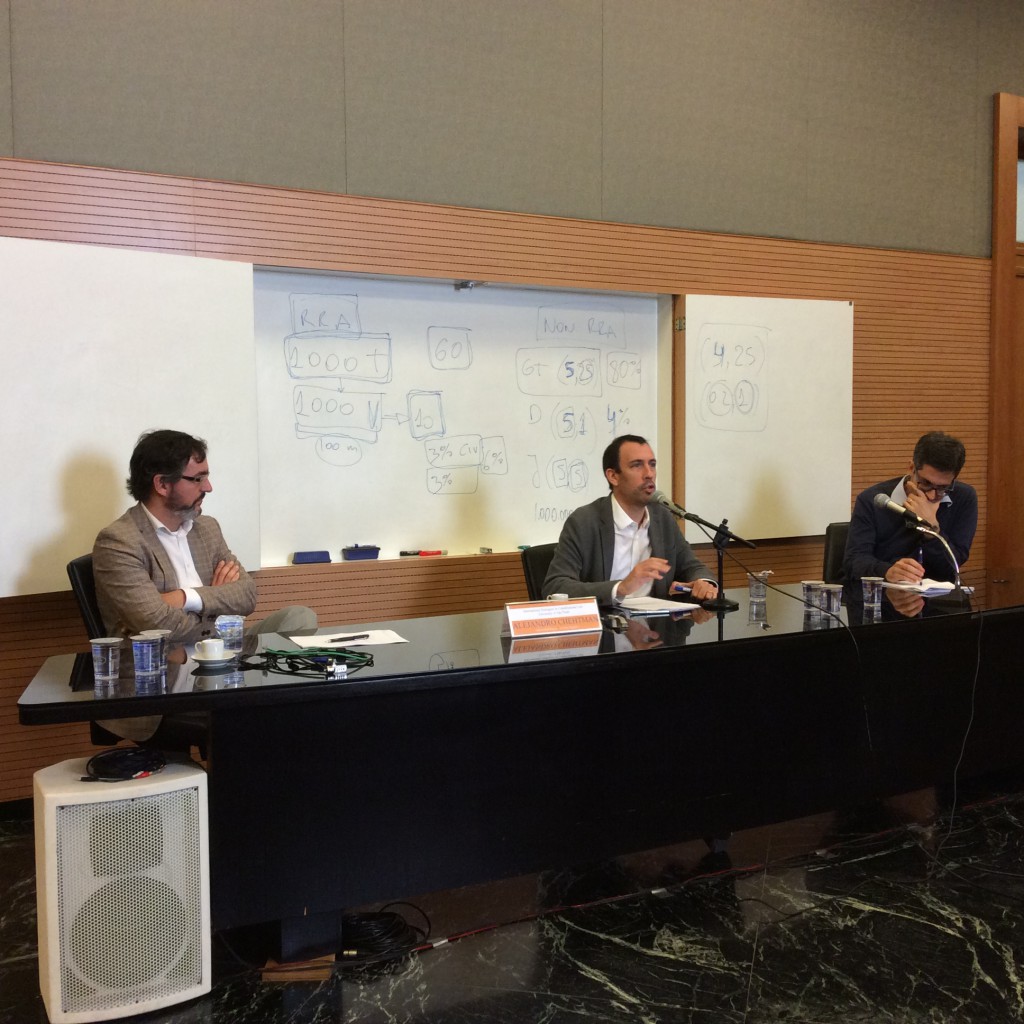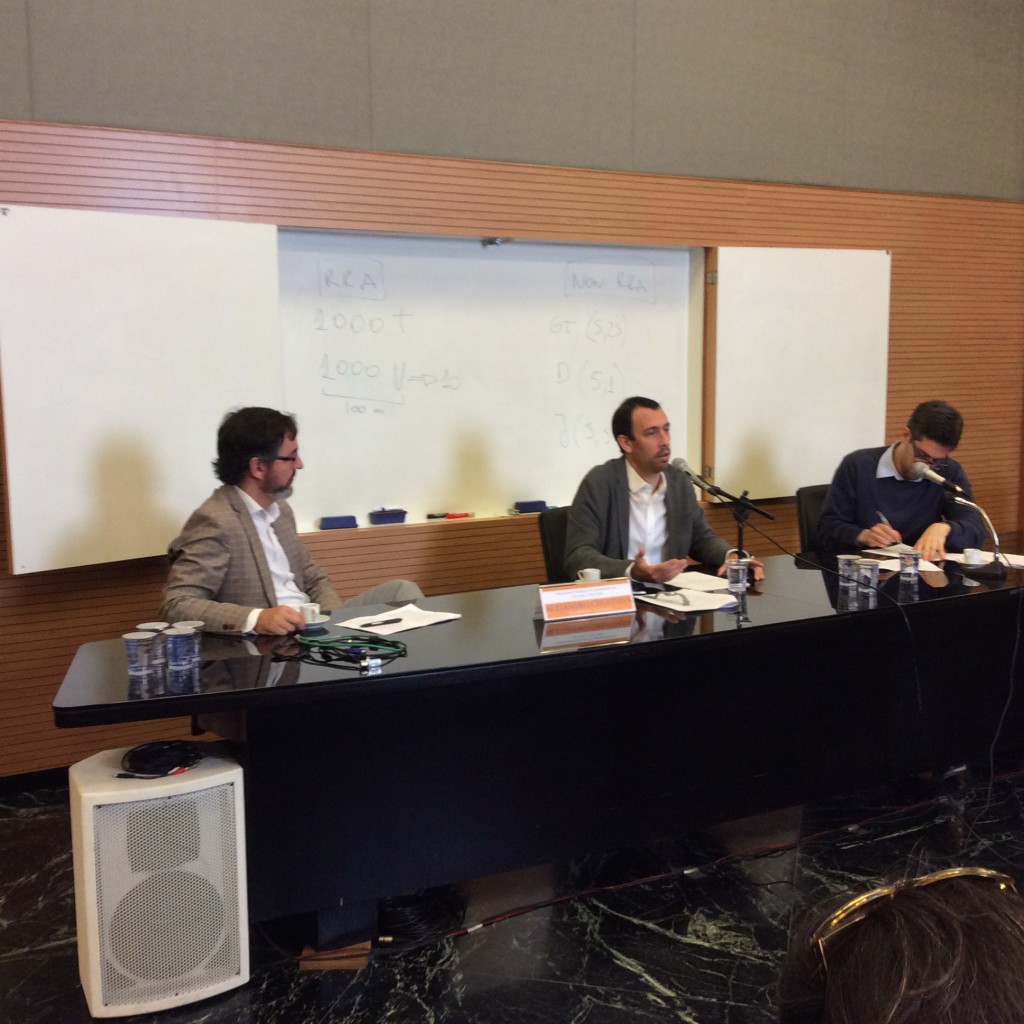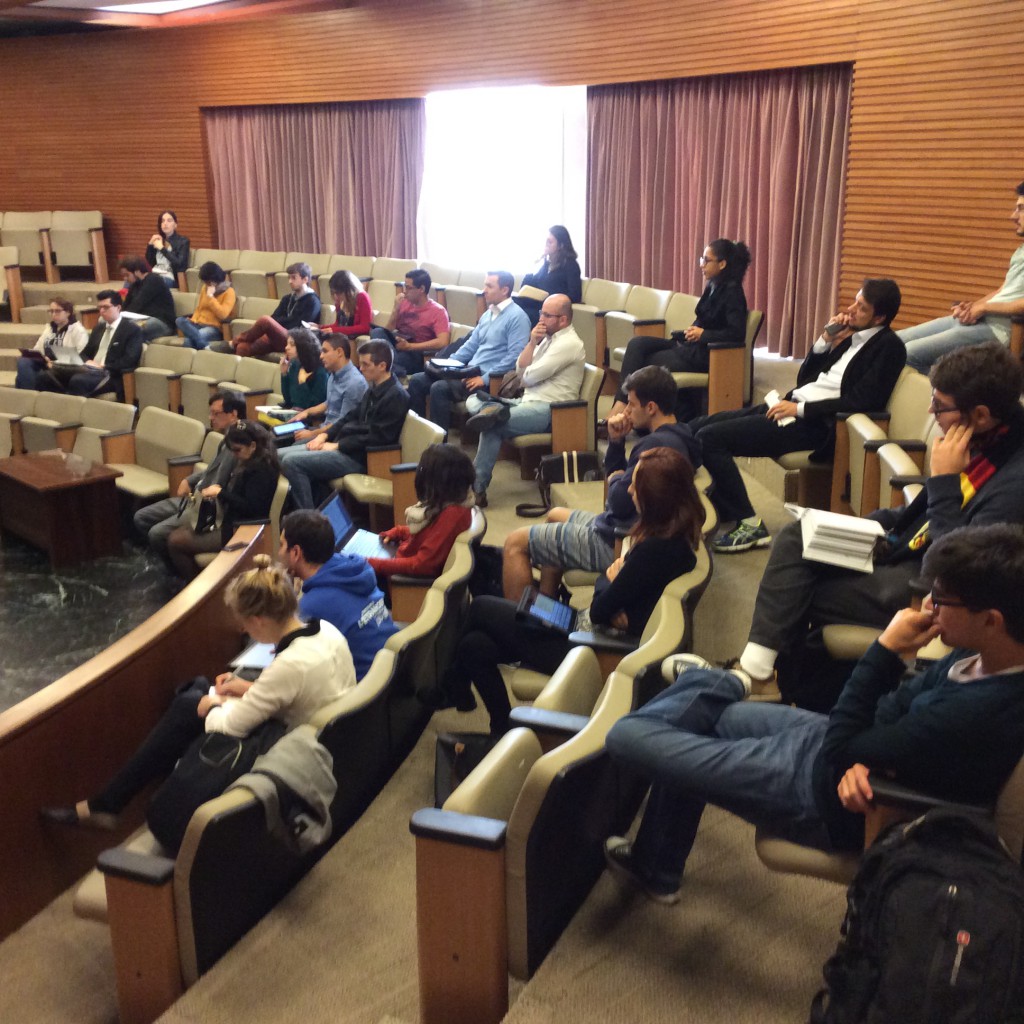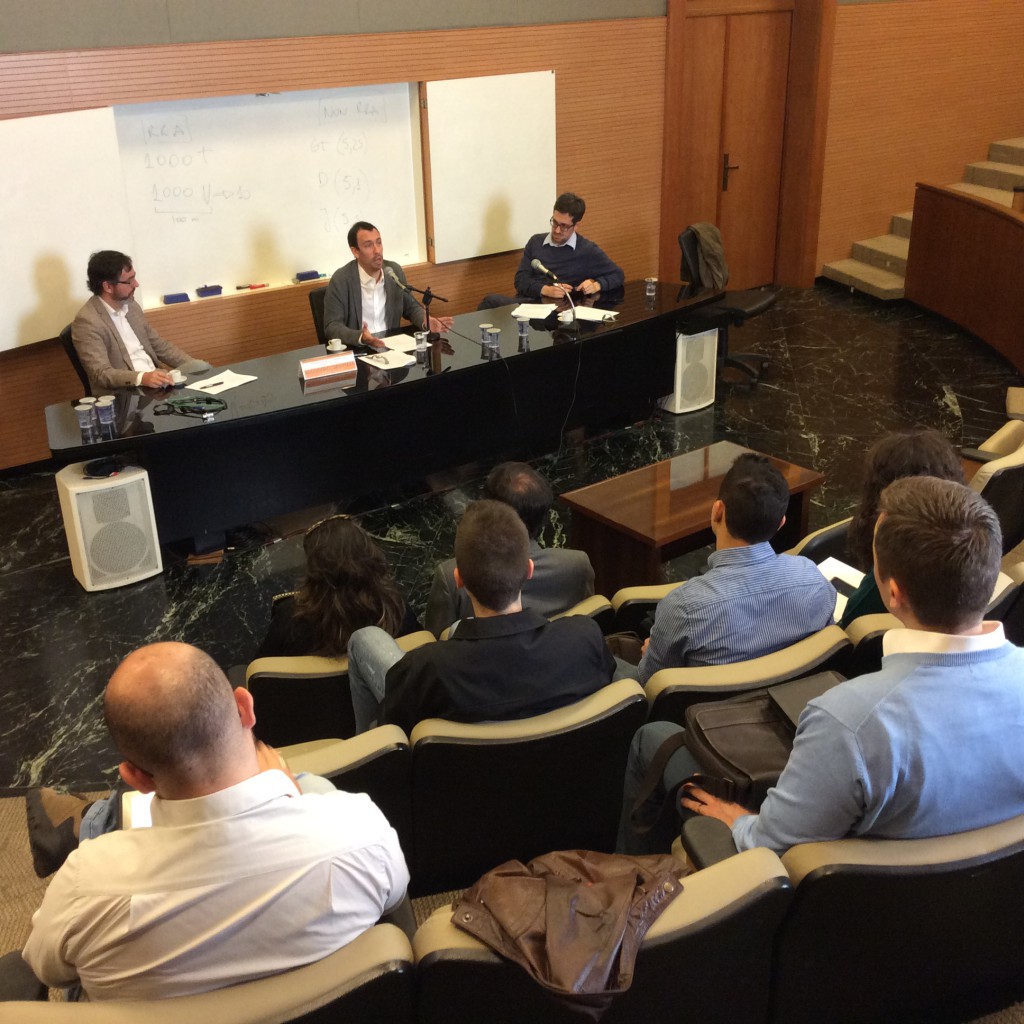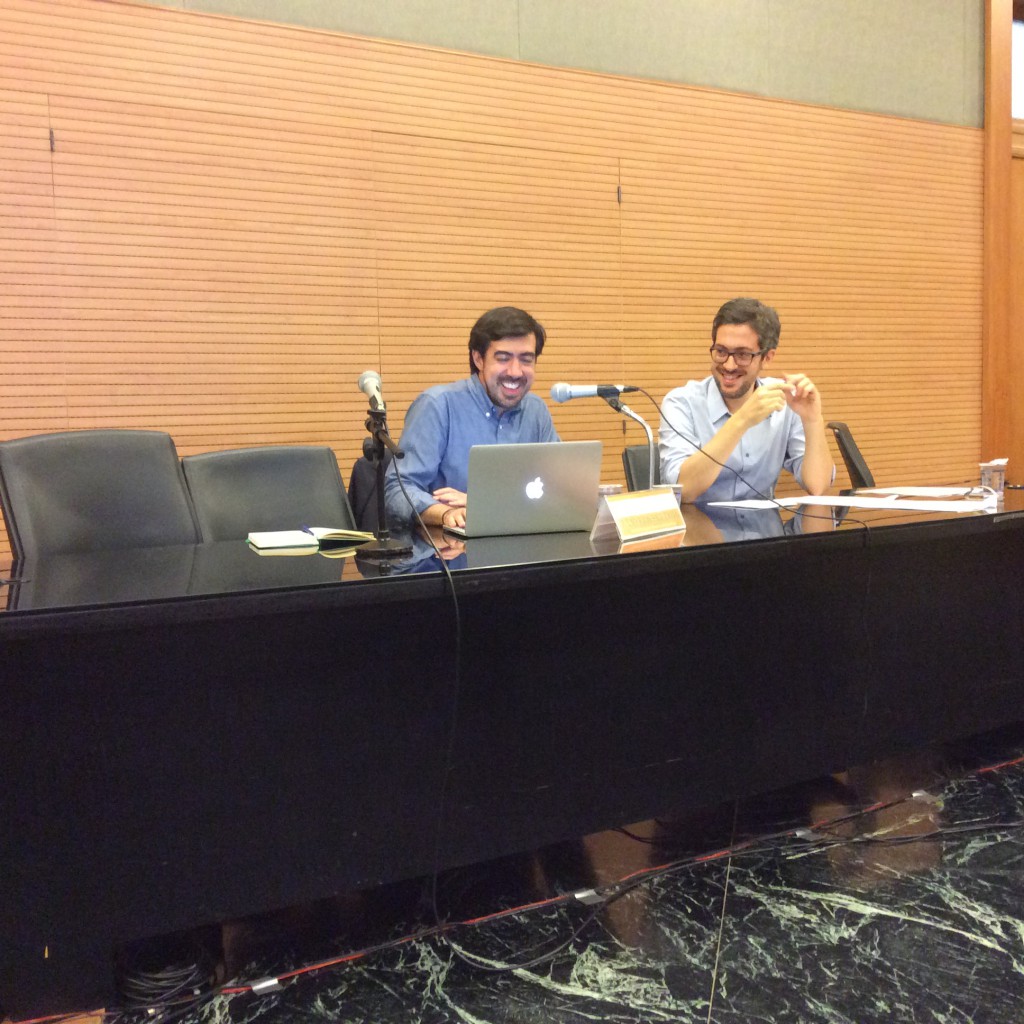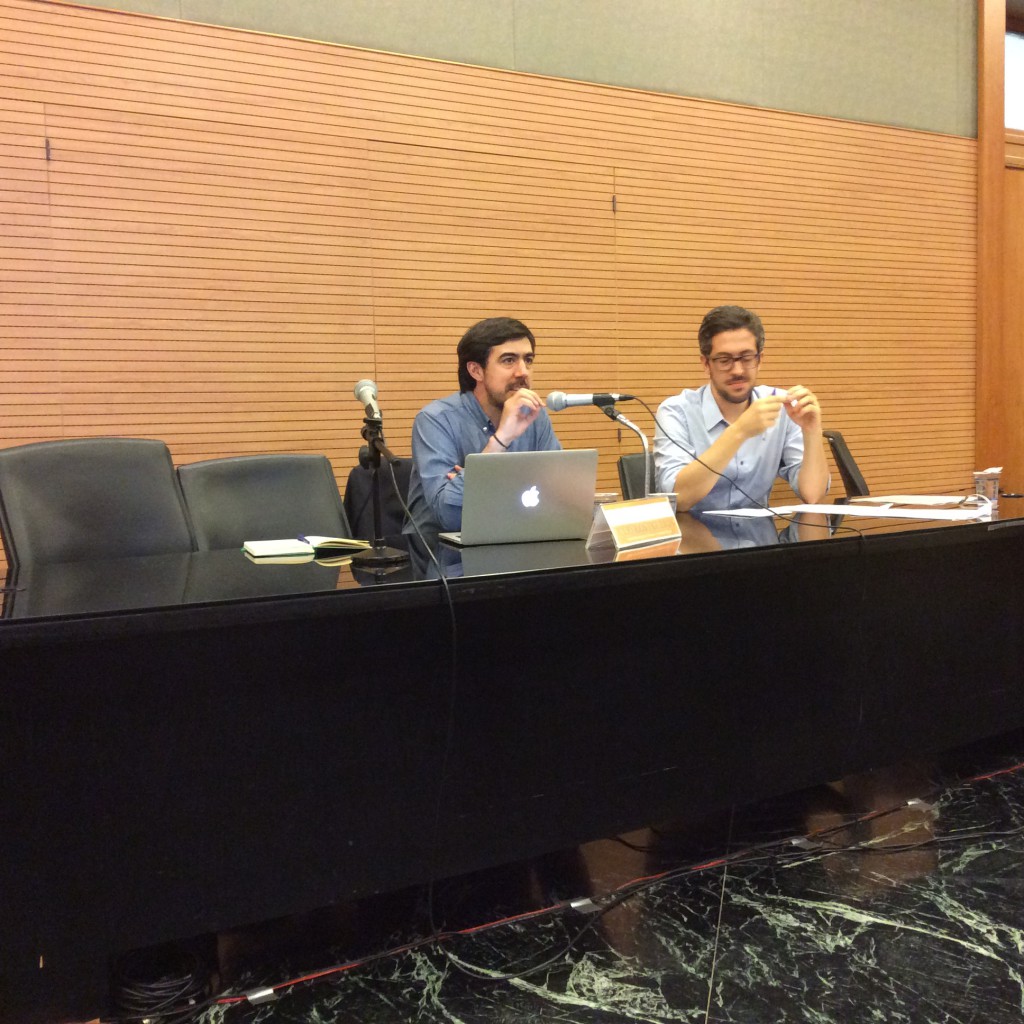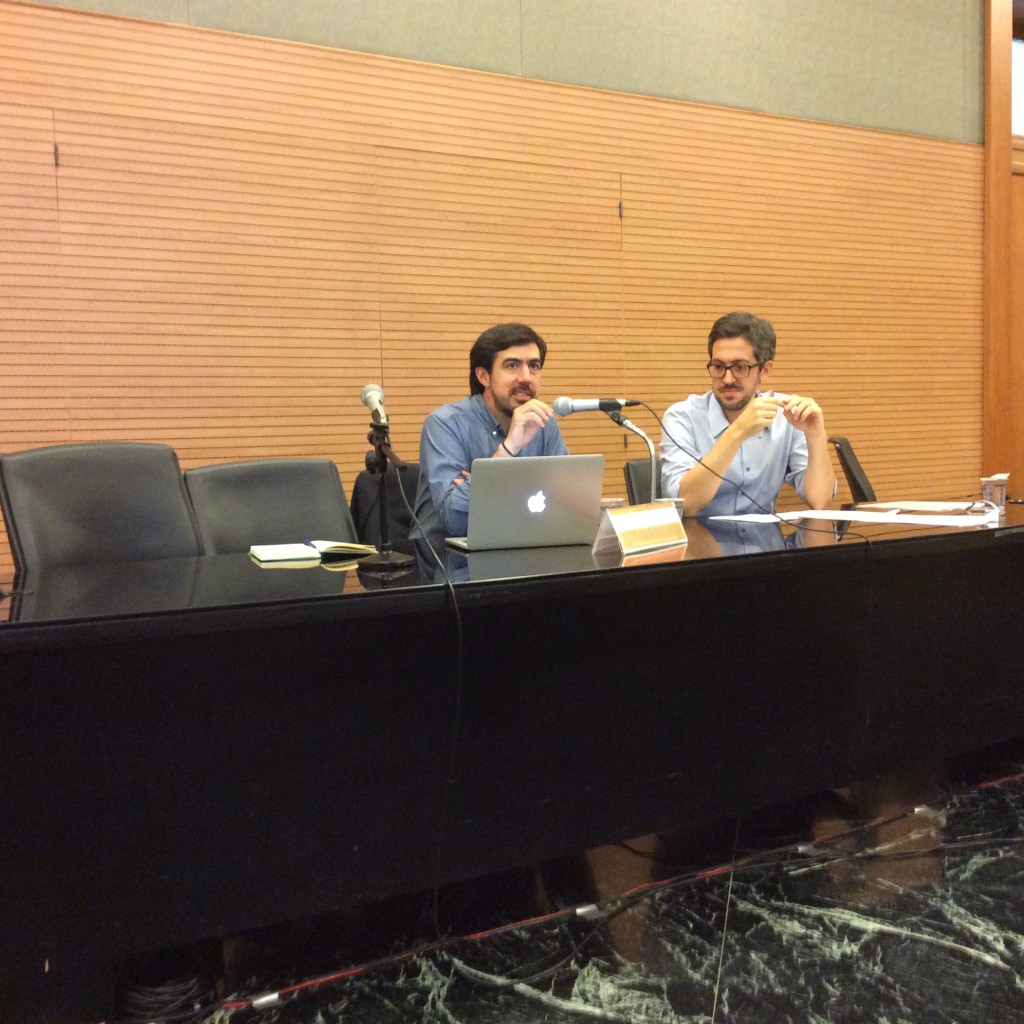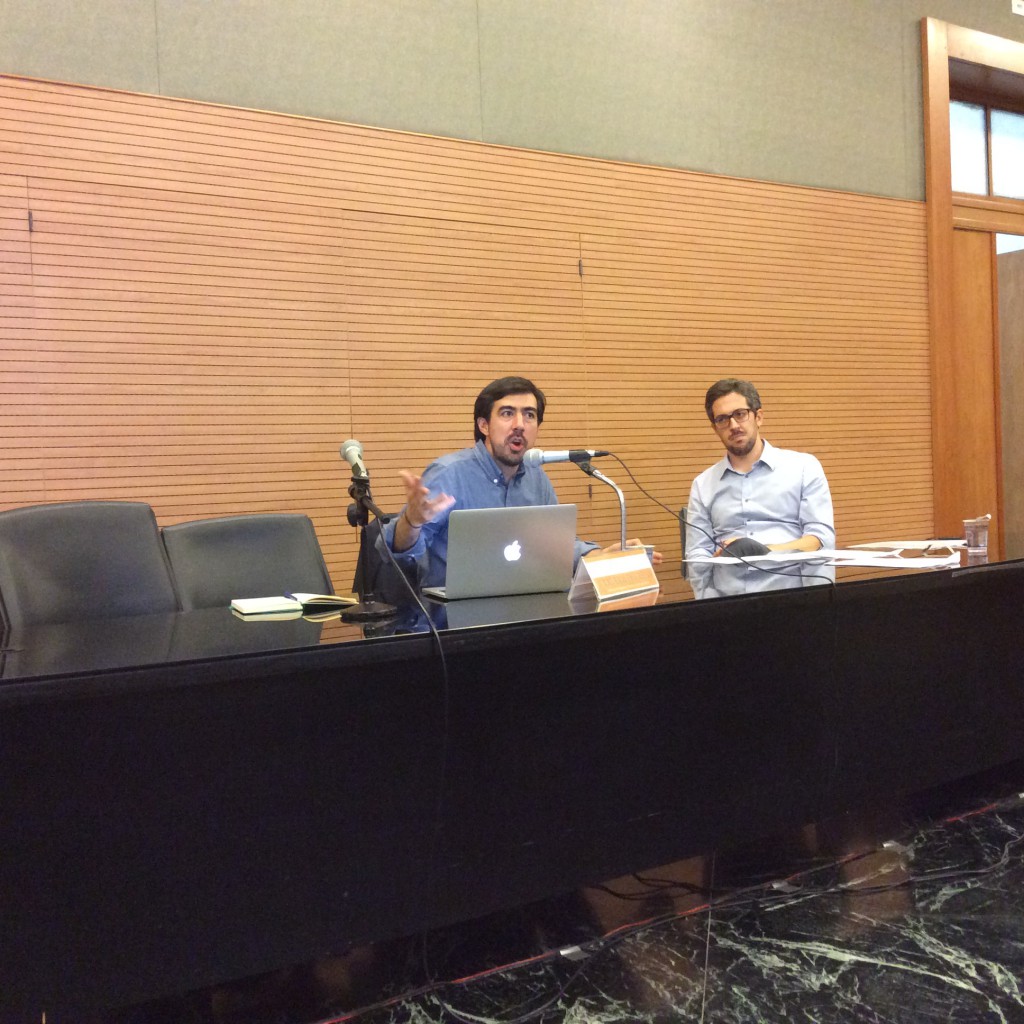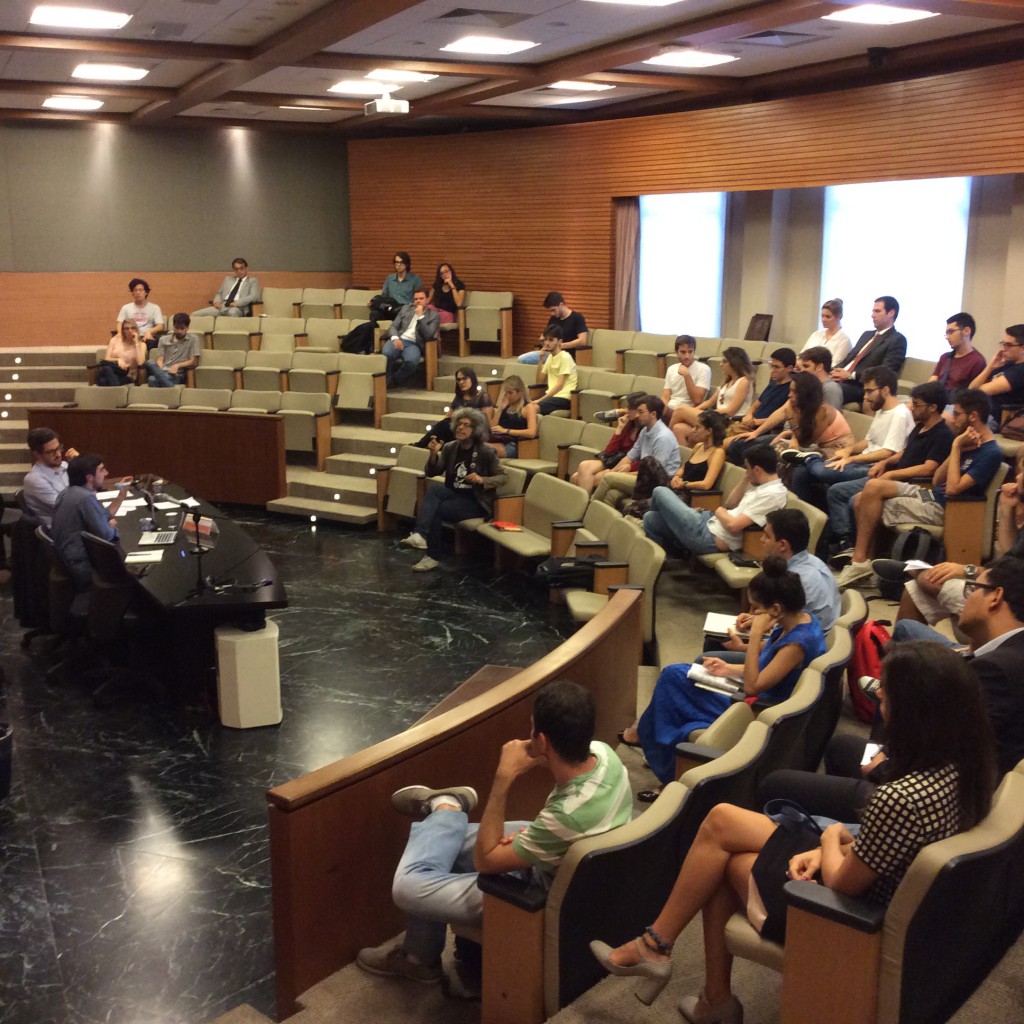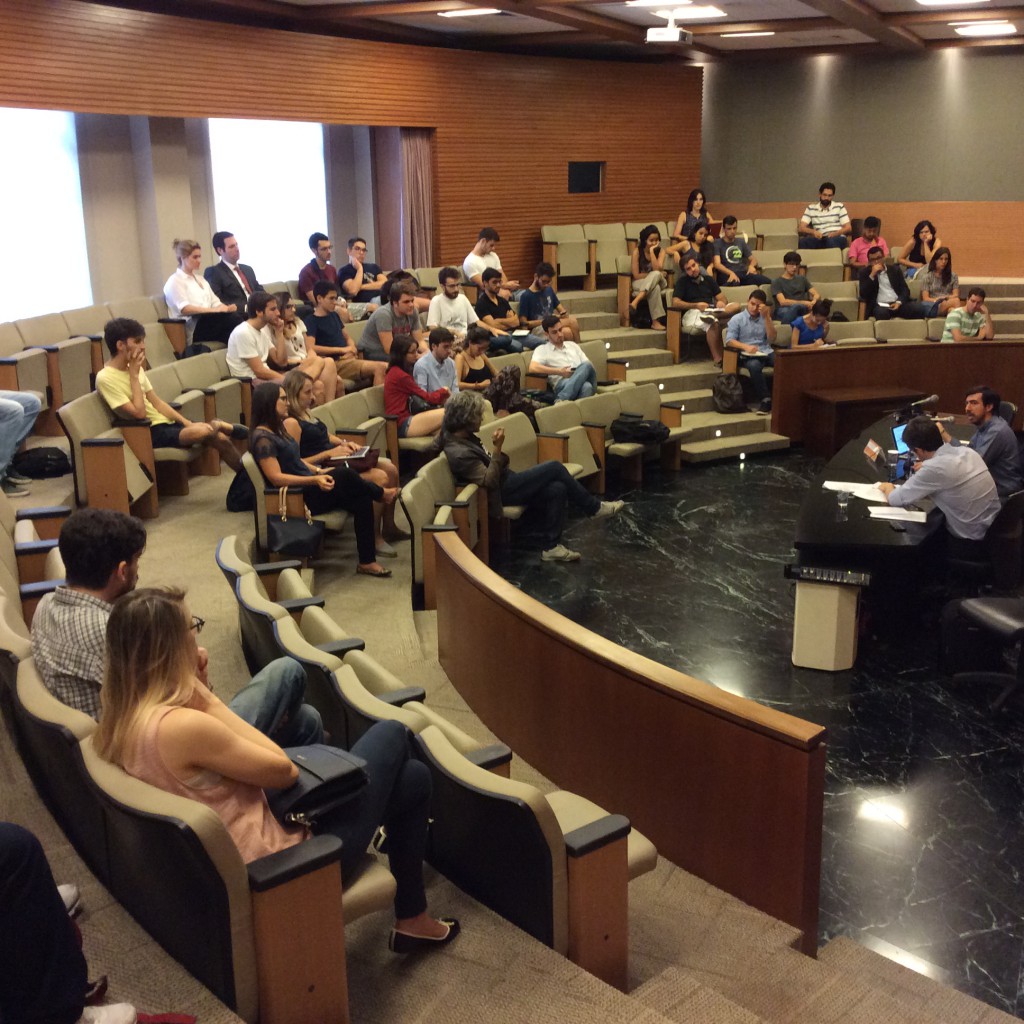The second meeting from the International Dialogues in Constitutional Law series discussed political constitutionalism
What is a political constitution? It was with this initial consideration that Marco Goldoni opened his speech on April 12th, in which he addressed one of the most important public law debates in the English tradition: the political element of the constitutional norm. Goldoni reconstructed the historical framework of political constitutionalism by dividing it into three waves, in order to demonstrate the importance of the concept of a political constitution reemerging in the third wave.
The political constitution concept comprehends an internal relationship between the constitution and society, an intertwining between the constitution and the social order, which would allow a wider framework to understand its legal aspects. This conception impacts on the way in which adjudication of individual rights is carried out today.
According to Goldoni, after the first wave (which emphasized the social conflicts), the second offered a more normative conception of constitutionalism, which ended treating the political process as a congressional process, therefore creating strong limitations. Why reconstruct constitutional politics so stringently, without taking into consideration the constituent power, which is the precise moment when politics has its greater creative potential? In the author’s view, the great gap of these theories is their failure to understand conflict as an inherent human condition.
For Goldoni, it is necessary to understand the grammar of political constitutionalism. Therefore, though incipient, the third wave of political constitutionalism has already started, a wave that recuperates the sense of politics from the first wave and brings social movements back to the center of the discussion. This new theoretical approach points towards institutional possibilities which the constitutionalists didn’t agreed yet, such as discussions regarding actors, positions and social representation, such as discussions regarding actors, positions and social representation.
After the exposition, several questions emerged for the debate: the importance of a bill of rights, the role of parliament, the institutional organization, the best way to protect rights, the possibilities for judicial review, as well as the role of the courts in promoting social demands. Highlighting the great difference between the Brazilian and European contexts, Goldoni stated the need of a more sensible and sociological view of the constitutionalists academics, which brings about the intermingling between the constitution and the ever-changing social relations.
